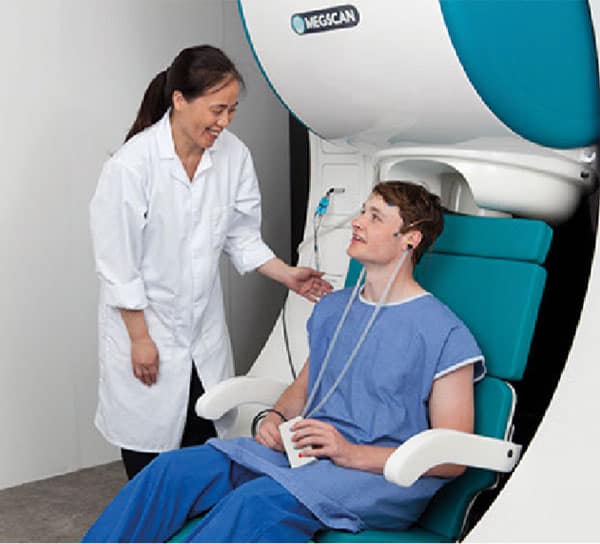As the UK prepares to leave the European Union, leaders of Britain’s industrial-physics community are eyeing up their options. Margaret Harris reports

“Please do not mention that word in our presence.”
The word Steve Self doesn’t want to hear is “Brexit”, and his comments will surely provoke sympathetic nods across swathes of the physics community. As the commercial director of Stream Bio, a UK-based start-up that manufactures nanoparticles for applications in bioimaging, Self is responsible for steering his firm through an often-complex marketplace. The UK’s impending departure from the European Union – which was, as Physics World went to press, still scheduled to take place on 29 March – could lead to changes in tariffs, customs arrangements, export regulations and other trading conditions for British and Northern Irish businesses. It’s fair to say that Self isn’t looking forward to it.
Probe a little deeper, though, and even Self, an advocate of staying in the EU, shows signs of – well, not optimism, exactly, but certainly a determination to make the best of the situation. Although Stream Bio may have to establish an EU trading base after the UK’s departure, Self and the company’s chief executive officer, Andy Chaloner, see this as a hurdle, not a deal-breaker. “Business will continue,” Self says phlegmatically. “Business always finds a way.”
Alternative arrangements
Other leaders of hi-tech, physics-related companies have similarly nuanced views. At York Instruments, which manufactures brain scanners based on a novel type of superconducting quantum interference device, chief technology officer Gary Green offers a measured response to questions about the company’s Brexit plans. The UK is, he observes, a good place to do business, with a strong intellectual property regime and a system of tax credits for companies that do research and development (R&D).
However, if Brexit leads to increased tariffs on exports, York Instruments is making plans to move its manufacturing base elsewhere. “It’s a shame, because we were very pleased that our equipment is manufactured here,” Green says. The company recently acquired a subsidiary in Finland, and while the purchase was not directly related to Brexit, Green thinks it will be helpful to maintain a presence within the EU.
For Arnab Basu, specific changes to tariffs or regulations are less of a headache than the uncertainty surrounding what will happen after 29 March. Basu is the founder and chief executive officer of Kromek Group, a publicly listed company that makes radiation-detection components and devices for medical imaging and nuclear security. Because Kromek gets most of its revenues from sales to customers outside the EU, Basu and his employees are already used to dealing with different export control and tariff regimes, and to complying with other countries’ regulations on product certification. “If we knew what we were planning for, we could plan for it,” he argues. “But we can’t plan for five different scenarios.”
As an example, Basu cites potential changes to compliance and certification programmes. Currently, companies wishing to sell products within the European Economic Area (EEA) need to meet certain environmental, health and safety standards, and have their compliance recognized under the CE marking scheme. If the UK leaves the European single market as well as the EU – as it would under the deal negotiated by Prime Minister Theresa May, but not under some alternative, “softer” Brexit proposals – a new, UK-specific mark would need to be developed to replace CE marks.
However, if Kromek and other UK businesses want to continue selling to markets that require the CE mark, they will still need to comply with CE rules – only now with the added hassle of sending all their technical files related to CE compliance to a European location, to be held by a European company. “It’s additional work, another layer of complexity, and I don’t know what we’re trying to solve by doing this,” says Basu in exasperation. “We don’t have an issue today, as a business, in doing business with any of the 30 countries where we’re active, whether that’s under an EU trade deal or other arrangements. All I see at the moment are disruptions.”
No deal, big problem
Kromek currently manufactures almost 50% of its products at its UK headquarters – which, like Stream Bio, is located in County Durham, where a majority (57.7%) voted to leave the EU in the referendum of June 2016. Most of Kromek’s other manufacturing takes place in the US, and Basu says that Brexit may influence the company’s next investment decisions. “We are currently looking at a capital investment programme of £6–10m over the next 6–9 months, and depending on what happens in March, we have the flexibility to alter where that capital investment programme happens,” Basu says. “If it’s complete chaos, the board will have a duty to go to where we have a better visibility” of market conditions, he adds.
The prospect of a chaotic Brexit also worries Ralf Kaiser, a physicist at the University of Glasgow and founding chief executive of a spin-out firm, Lynkeos Technologies. “Brexit can, if we’re not lucky, kill our business outright,” he tells Physics World. Lynkeos makes systems that use muons to image barrels of intermediate-level nuclear waste, and therefore depends heavily on government funding for nuclear decommissioning. If this funding dries up – which it might, if some of the more alarming Brexit predictions come to pass and the government struggles to cope with food and medicine shortages – then companies like Lynkeos will be, as Kaiser puts it, “further down the chain”. Another Lynkeos employee, David Mahon, adds that many of the components in their systems are manufactured in America or Japan, meaning they would be exposed to a fall in the value of the pound.
Brexit uncertainties are also affecting some hi-tech UK businesses in more personal ways. Chris Meadows, head of open innovation at IQE, a multinational semiconductor manufacturer, says that Brexit has hurt his ability to recruit skilled employees from EU countries to IQE’s headquarters in Cardiff. Business leaders are concerned about current employees, too. About a third of workers at the Glasgow-based laser firm MSquared Lasers hail from outside the UK, and the company’s chief executive, Graeme Malcolm, says his priority is to preserve that diversity. “The world’s a big global community now and science has led the way on that,” he says. “The more that’s the case, the better for mankind.”
Situation unknown
During the Brexit referendum campaign, some Brexit supporters argued that UK companies needed to be “freed” from onerous EU regulations in order to do more business in higher-growth markets, especially in Asia. According to John Lincoln, who heads a UK industry trade body called the Photonics Leadership Group, this kind of thinking was “certainly a discussion point” within the UK’s photonics sector two years ago. Today, though, Lincoln believes those potential benefits have receded from people’s minds, because the UK’s future trading relationships remain so uncertain.
When asked about possible Brexit benefits, Meadows of IQE suggests that the removal of EU rules on state aid could make it easier for companies like his to get government funding for R&D. Lincoln adds that a chaotic Brexit could, perhaps counter-intuitively, yield more support for industry, because the government “would need to go back to the industries that were exporting stuff and say, ‘Um, how can we help you do this?’”
Basu, however, dismisses the idea of a Brexit dividend for export-focused companies like his. “Whether we are going to do better trade deals or worse trade deals, at the moment our business flourishes based on arrangements we already have,” he says. When asked what the government could do to help his business do even better, his answer is immediate. “Give us clarity,” he says. “Give us clarity of what’s going to happen, give us clarity over what time scale it will happen. As businesses we are slightly less bothered about the politics. What we are really bothered about is, give us enough time to plan so that we can cope.”



